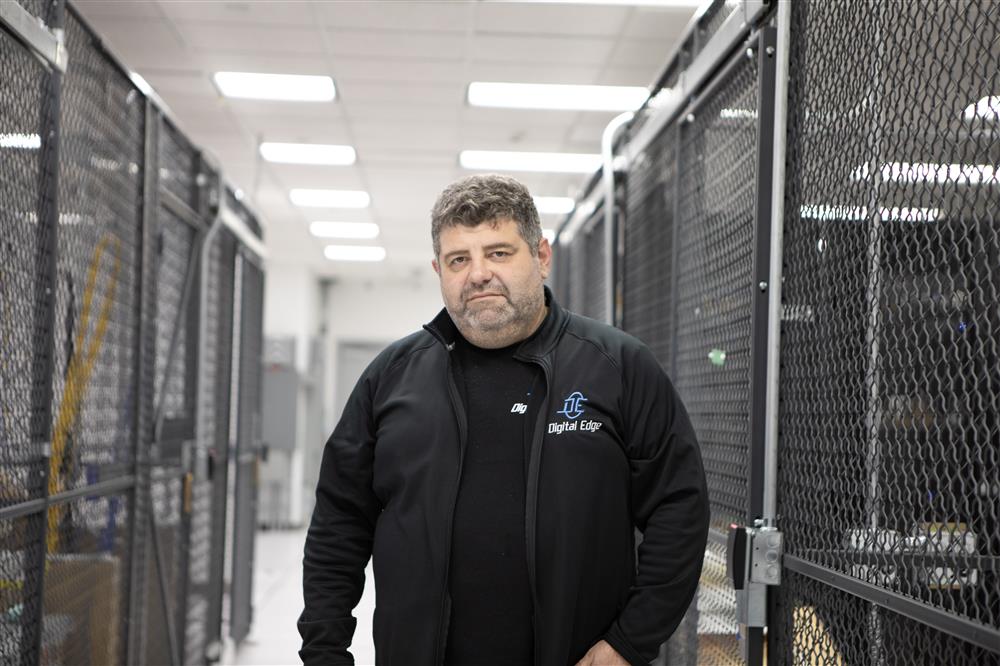We are a leading IT company and AWS Partner which is headquartered in New York, yet staffed globally. Indeed, even prior to the disruption brought on by the Covid pandemic, we had a decentralized organization where the talent we sourced was more important to us than where our talent was sourced. With this as a guiding principle, we as many other IT firms tended to have substantial staff located in Ukraine.
It all worked great for many years as a win-win-win for our Ukrainian staff, which was happy to be employed by a US firm (and to be paid in US dollars); for our clients which were happy with a work product that exceeded expectations; and for Digital Edge, which was happy to have happy clients (and to be paying competitive, albeit steadily rising, compensation in US dollars).
As the conflict in Ukraine unfolded, nothing would have prepared us for the scale of the humanitarian crisis created. Although, I note that from a business perspective we were and we continue to be fine despite the 20% proportion of our staff based in Ukraine, as the nature of our business, along with our AWS Partnership and various certified AWS personnel, and our organizational ISO 9001 and ISO 27001 certifications, have well prepared us to handle critical and sensitive client data for which we are always at the ready with multiple levels and channels of redundancies. We thus put in place contingencies long before any border was crossed or any bullet was fired.
While the idea of a temporary phase out of our Ukrainian team was considered, it was almost immediately discarded, not least due to the perseverance of our staff who wanted to ‘stay in the game’ as much as possible. To them it was not just a matter of pride- one of my team members likened it to the front line Covid workers in early 2020 that merited daily applause from the public. It was also a tool of resilience in the face of adversity and a way to keep sane during the tough times.
However, whatever it meant to my staff, I have a deep responsibility to my clients to manage their most critical and sensitive bits of data, so altruism and politics aside, I could not even contemplate any risk unless I was sure it could be adequately mitigated. As real hostilities began, we implemented various mitigation efforts, including certain confidential measures, which I can not speak of here, and other measures including the ones I share below:
- Organization of communication channels and check points with all employees, with statuses verifications taken bi-hourly;
- Termination of all permanent connections originating from all hostile regions, switching to personal connections with 2FA.
- If any team member misses a prearranged checkpoint we preemptively terminate the respective VPN connection.
- Facilitation, to the extent possible, of the relocation of all staff to neutral countries, or to western parts of Ukraine where hostilities remain relatively less through the present time.
- Adaption of flexible work schedules to the convenience of relocated staff that is willing and able to continue working in a secure manner.
- Implementation of redundancy coverage among staff so schedule shifts can be quickly accommodated according to preconceived backup structures.
With the business concerns properly covered, I want to provide some further anecdotal insight into what we have been doing and how some of our actions have resonated with our teams and stakeholders.
Digital Edge has been in continued communication with the Consul General of Ukraine in New York, Oleksii Holubov, with a view to assisting in the humanitarian crisis in the most effective ways possible. Certainly, one manner of aid is to provide direct financial assistance to efforts of safe migration for refugees; and Digital Edge has been contributing in this regard since the very outset.
Another, more long-term and principled view, is to support the Ukrainian economy particularly in those limited sectors that are able to continue to perform at this time, prominent among them the Information Technology space. Of course, war is war and economics is economics. Each must be met with such due care as is required in order to properly navigate the obstacles that each throws. In discussions with my Ukrainian staff, however, it seems they are facing front line battles in both respects. Aside from the war, they maintain that whatever economy remains in the country should be supported. And, as they are concerned that the demand for Ukrainian IT talent may wane in the advent of war, and regional competitors in the IT sphere may seem more attractive, they want to send a clear message that they are at our service. Moreover, they want the world to support it not only militarily but also economically, and not only after the war ends but even now when they are ready, willing, and able to work, along with whatever risk mitigation efforts may be necessary to ensure proper security.
As I have mentioned, there is a well-substantiated reason that Digital Edge and other IT firms had developed knowledge bases among the wide field of talent available in Ukraine. Now the quality of our Ukrainian Team’s proven and unwavering resilience can be added to its quality of deep technological aptitude. We have seen this first-hand as our team demands to continue to work, even as we reassure them that they may be excused from day-to-day responsibilities with full pay. Of course, even as we continue to utilize our Ukrainian staff, we have done so cautiously, as I have above detailed some of our mitigation efforts.
Thus, as our colleagues and clients continue to put their faith in Digital Edge, Digital Edge in turn, continues, to the extent securely practicable, with its own unwavering and resilient support of our admirably brave and widely talented Ukrainian staff that continues to support all of us.

